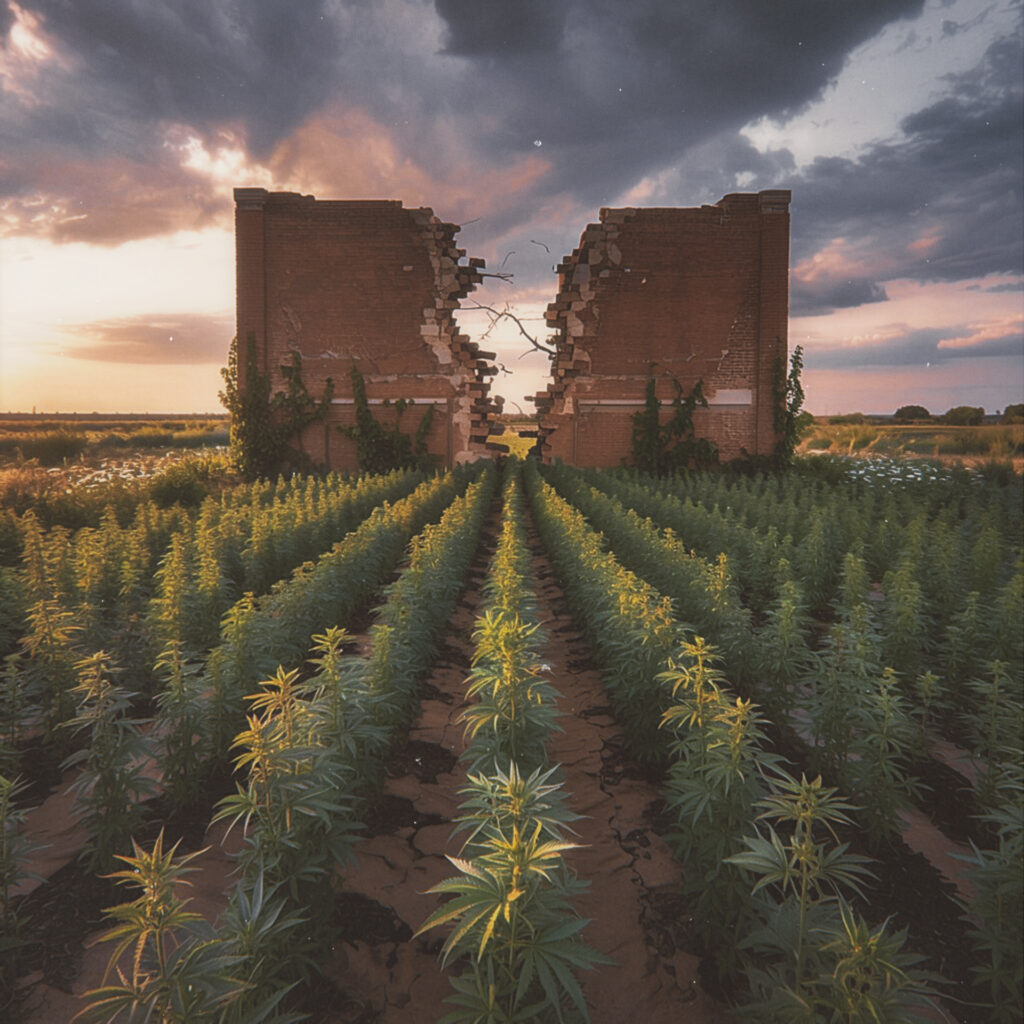On June 22, Gov. Greg Abbott did something few expected: he struck down Senate Bill 3, a sweeping hemp ban that would have gutted Texas’s $8 billion hemp industry overnight. The move preserved thousands of jobs and kept shelves stocked with Delta-8 gummies, CBD tinctures, and hemp-derived THC vapes that have become a lifeline for patients and veterans.
The veto didn’t just stall a bill—it cracked open a fierce political divide in Austin that has been simmering since the 2019 Texas Farm Bill first legalized hemp with less than 0.3% THC.
From loophole to empire: hemp’s rapid rise in Texas
When the Texas Farm Bill passed in 2019, lawmakers thought they were opening the door to CBD oil and industrial hemp fibers. What they got instead was a full-blown industry built on chemistry. By isolating and synthesizing cannabinoids like Delta-8 and Delta-10, hemp entrepreneurs created products that deliver a buzz while technically staying under the federal THC limit.
The state’s medical cannabis program, meanwhile, has remained narrow—restricted mostly to epilepsy patients and capped at low THC. Hemp filled the gap. By 2024, market analysts pegged the industry’s value at $8 billion, supporting farmers, shop owners, processors, and distribution networks across the state.
For many Texans, hemp edibles and vapes became the only accessible, affordable cannabis option. That consumer demand powered explosive growth—and set the stage for a political showdown.
SB 3: the bill that nearly banned it all
Senate Bill 3 wasn’t just a tweak to labeling rules. It aimed to ban all consumable hemp products containing any psychoactive cannabinoids. That meant Delta-8 gummies, hemp-derived vape carts, THC-infused seltzers—gone.
Lt. Gov. Dan Patrick pushed the bill hard. In a press conference dripping with moral panic, he called hemp edibles “poison” and argued they were being marketed to kids. His messaging resonated with parents’ groups and some law enforcement agencies who said the unregulated market made it too easy for minors to buy intoxicating products.
SB 3 passed the legislature in May 2025. Had Abbott stayed silent, it would have become law automatically on Sept. 1.
Public pushback: veterans, patients, businesses fight back
The outcry was immediate and massive. At a March committee hearing, more than 200 Texans testified, most of them against SB 3. Veterans’ groups were particularly vocal, warning that a ban would cut off access to hemp products they rely on to manage chronic pain, PTSD, and insomnia—without opioids.
The Veterans of Foreign Wars Texas branch issued a stark warning: outlawing hemp would “harm veterans more than it protects them.” Business groups echoed the alarm, pointing out that thousands of jobs and billions in tax revenue were at risk.
Grassroots mobilization followed. The Texas Hemp Business Council delivered more than 150,000 petition signatures urging Abbott to veto the bill.
Abbott’s veto: law, not loyalty
Abbott’s veto statement read less like a culture-war proclamation and more like a legal memo. He argued that SB 3 was “legally flawed,” citing federal preemption that would almost certainly make the ban unenforceable in court. He also criticized its effectiveness, saying prohibition wouldn’t protect minors but would wipe out an entire industry.
Instead, Abbott called for “sensible regulation.” He floated ideas like stricter packaging rules to keep products out of kids’ hands, limits on where hemp items can be sold, and tougher penalties for sales to minors.
The governor’s move placed him at odds with Patrick, his Republican lieutenant, but aligned him with both industry voices and legal scholars who warned SB 3 wouldn’t stand up in federal court.
Political fault lines: prohibition vs. regulation
The veto didn’t settle the fight—it redrew the battle lines. Patrick has already pledged to revive hemp prohibition in future sessions, framing it as a moral and public safety crusade. Abbott, meanwhile, has left the door open for a regulatory compromise, signaling he wants rules, not bans.
This divide mirrors broader cannabis debates across the country. Prohibitionist politicians argue that hemp products exploit loopholes in the federal Farm Bill and endanger kids. Advocates counter that bans don’t eliminate demand—they just drive it underground. Regulation, they say, is the only realistic path.
Risks and counterarguments
To be fair, Patrick and SB 3 supporters aren’t inventing concerns out of thin air. Hemp-derived THC products often mimic the look and feel of legal cannabis, but without the testing standards applied in regulated marijuana markets. Studies have found inconsistent labeling, potency discrepancies, and in some cases contamination.
The risk of youth access is real, particularly given how many hemp shops sell products in candy-like packaging. Without federal FDA oversight, it’s left to states to patch together their own frameworks.
Abbott’s veto acknowledges those risks but insists prohibition isn’t the solution. That stance leaves Texas in a gray zone—hemp is legal, but regulation is minimal.
What’s next for Texas hemp
For now, the veto preserves the status quo: hemp shops stay open, farmers keep planting, and consumers keep buying. But uncertainty looms.
Businesses are bracing for another legislative battle in 2027, when Patrick and his allies will almost certainly push for a new ban. In the meantime, Abbott’s office is expected to float regulatory proposals that could reshape the market, from child-resistant packaging to zoning restrictions that limit where hemp shops can operate.
Market watchers will be tracking key data points: whether hemp sales continue to climb, how regulators enforce age restrictions, and whether any lawsuits emerge testing the boundaries of federal preemption.
Why this matters beyond Texas
Texas isn’t just another state in the hemp game—it’s one of the biggest. Its $8 billion industry rivals entire state cannabis programs elsewhere. What happens in Austin reverberates nationally, especially as Congress debates updates to the federal Farm Bill and whether to close hemp loopholes.
For Arizona and other states with more integrated cannabis frameworks, Texas’s saga is a cautionary tale. When cannabis reform is piecemeal, hemp fills the gaps—and then sparks political chaos.
Trappy’s take
Gov. Abbott didn’t suddenly become a hemp hero. His veto was pragmatic, rooted in legal and economic realities, not cultural alignment. Still, for veterans relying on Delta-8 gummies to sleep through the night, for farmers with hemp fields ready to harvest, and for small-town shops whose survival depends on tincture sales, the move was nothing short of life-saving.
The real question isn’t whether Texas can ban hemp. It’s whether lawmakers are willing to regulate it responsibly before the next round of political theater.

***
Trap Culture is the ultimate destination for cannabis enthusiasts who want to experience the best of Arizona’s cannabis culture. Whether you are looking for the hottest cannabis-friendly events, the latest news on cannabis legalization, trends in the industry and exclusive, limited-edition products from the top brands in the market, Trap Culture has you covered. Visit our website to learn more about our events, our blog, and our store. Follow us on social media to stay updated on the latest news and promotions. Join the Trap Culture family and experience the most immersive and engaging social cannabis events in Arizona.
Follow us on social media




